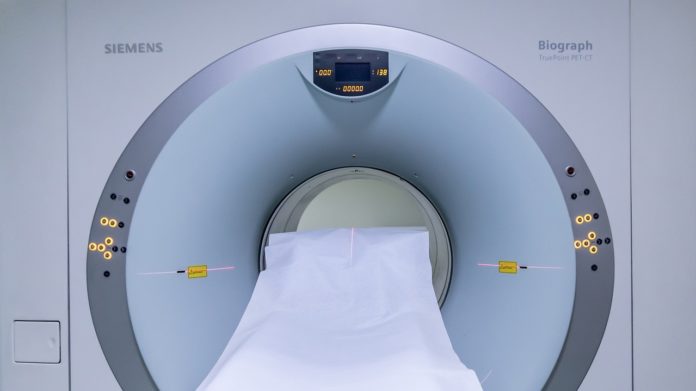Artificial intelligence can be taught to find abnormalities in medical scans, but first, researchers need to provide a large collection of medical images that cover healthy & unhealthy patient cases for both normal and abnormal diagnosis patterns to be recognized. Once trained, AI can provide algorithms that will help healthcare practitioners pick out various health conditions, including personalizing the care of cancer patients.
Imagia is a Montreal-based company whose platform manages and processes large medical datasets from across its network, making it easier for researchers to access anonymized data sets quickly.
“Clinical researchers need data to do their work and collecting clinical information alone could represent up to a year of research activities,” explained Imagia’s CTO, Florent Chandelier, to La Presse. “Researchers had to rummage through every clinical information system in every hospital to create a single dataset.
“We have developed tools to support them using AI. Our EVIDENS platform allows clinical researchers to have access to the medical data of all patients in a hospital under appropriate ethical clearance, and to make cross-checks easier. What could take a year is done in just one afternoon.”
Finding the EVIDENS
The EVIDENS™ platform ingests multiple forms of data including labs, reports, and images to design clinical studies based on real-world evidence. With this technology, clinicians can build patient cohorts linked to diagnostic and treatment responses and annotate them to create data ready to be processed by the AI.
The system allows users to gain generalizable insights without divulging patient identifiers or raw patient data, since these remain in each hospital’s database. This way, researchers can collaborate while being compliant with patient privacy rules across Canada, Europe, and the US.
Data uploaded to the system are automatically categorized using the information contained in clinical notes, reports, and so on. Natural language understanding and processing are applied to the data, which enables an efficient review process for quality checks.
The data are then automatically pre-annotated using Joint Machine Learning across pairs of text and images (in the fields of radiology and oncology, for example). Finally, the data can be manually or semi-automatically annotated by researchers using Machine Learning assistance in real-time.
“Using the EVIDENS platform, clinical research teams can unlock hospital-wide data sets, deriving insights using AI, and collaborating across organizations while respecting data privacy and ownership using our federated learning model,” according to their website.
Imagia aims to connect nearly 100 partners nationwide as part of their network, including healthcare institutions, small-to-medium size enterprises, universities, research foundations, and four major Canadian AI research labs.
Digital Health and Discovery Platform
Last year, Imagia, in collaboration with the Terry Fox Research Institute, co-led a new national platform launched by the federal government called the Digital Health and Discovery Platform (DHDP). With a $49 million grant from Canada’s Strategic Innovation Fund, they aim to bring the power of AI to the development of clinical databases and personalized cancer treatments.
“Our platform will be implemented in 31 hospitals in nine provinces in Canada, which will create a unique foundation for healthcare discoveries “made in Canada”, and enable the necessary framework to personalize healthcare under the principles of representativity and fairness,” said Chandelier.
In recent years, Imagia has also been developing screening solutions to speed up the detection of cancers. For example, their AI was featured in a joint collaboration to improve colonoscopy screening by enabling physicians to better predict polyp histology in real-time.
They have also been enlisted to improve breast cancer screening by using AI to efficiently and accurately identify mammographic abnormalities as benign or malignant and to predict the clinical response to immunotherapy for lung cancer patients by AI using a combination of genomic, pathology, and imaging data.
The company’s founding story is an intensely personal one for the founder, Alexandre Le Bouthillier, who suffered a close personal loss to cancer. Inspired to turn the grief into something constructive, he teamed up with Nicolas Chapados, and together, they decided to use their deep knowledge of AI and optimization to advance the medical field.
Today, Imagia collaborates with all manner of institutions and companies to co-develop AI-based healthcare products and further personalized healthcare globally. They are part of the growing body of innovative Canadian companies that have landed the country with a reputation as a hub for AI and technology.
“The time to harness the power of AI is now so that we continue to augment Canada’s position on the global AI stage,” commented Le Bouthillier.








































